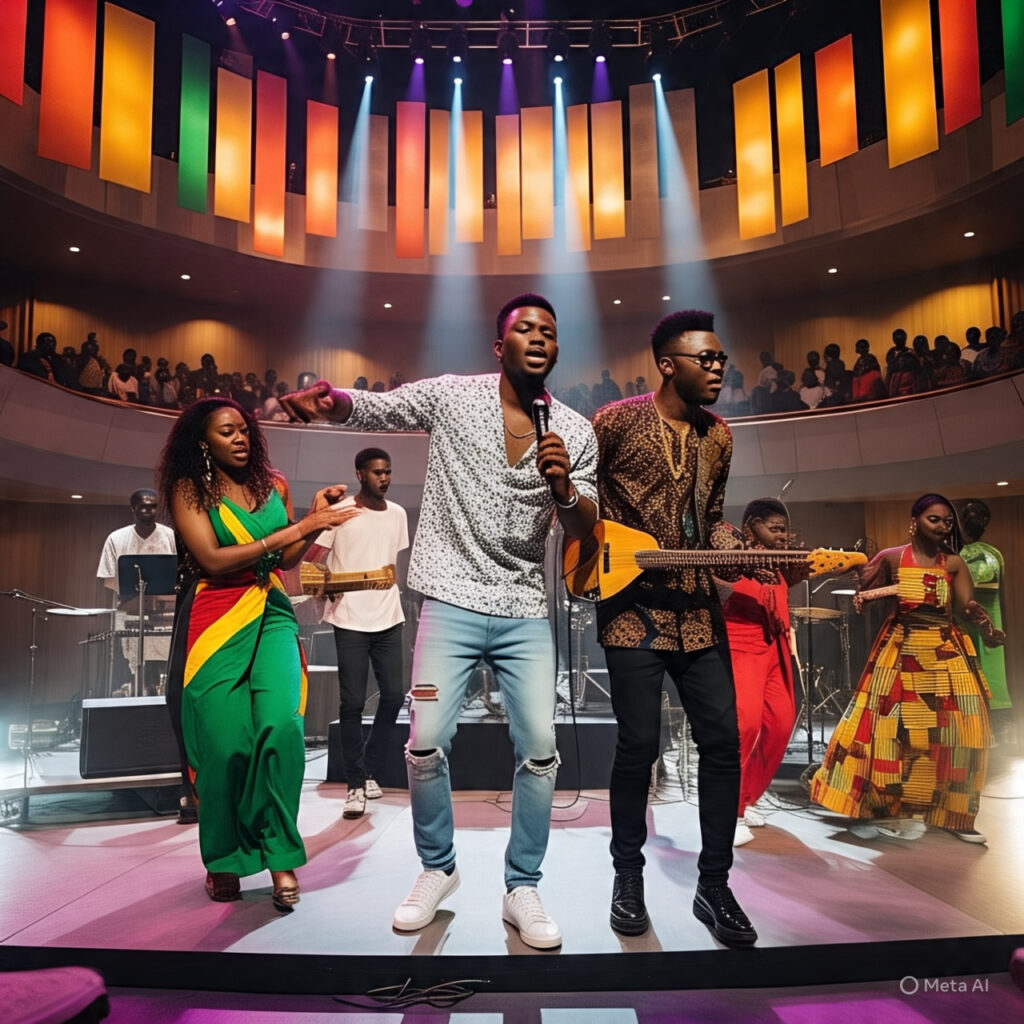From Lagos to the World,
Afrobeat, a vibrant and infectious music genre born in Nigeria during the late 1960s, has transcended its West African roots to become a global cultural phenomenon. Pioneered by the legendary Fela Kuti, Afrobeat blends traditional African rhythms, highlife, and jazz with funk, soul, and political lyricism. Over the decades, its strong beats and socially conscious messages have resonated far beyond Africa, influencing artists, shaping global music trends, and fostering cross-cultural connections. Afrobeats has become more than a sound—it’s a lifestyle. The genre has influenced global fashion, dance trends, and youth culture. Afrobeat-inspired styles grace the runways of Paris and Milan, while TikTok dancers and influencers continue to spread Nigerian street styles to the world.
Afrobeat’s international journey began in the 1980s and 1990s as African diaspora communities in Europe and North America introduced the genre to new audiences. Fela Kuti’s tours in the United States and Europe, along with collaborations with Western artists, exposed Afrobeat to diverse listeners. His influence can be heard in the works of artists like Talking Heads and Paul Simon, who incorporated African rhythms into their music during the 1980s world music boom. The genre gained further traction in the 21st century with the rise of digital platforms. Streaming services like Spotify and YouTube allowed Afrobeat to reach global audiences, while social media amplified its visibility. Nigerian artists like Femi Kuti (Fela’s son) and Seun Kuti kept the traditional Afrobeat flame alive, while a new generation of artists like Psquare, 2face, Dbanj began blending it with contemporary genres like hip-hop, pop, and electronic music, giving birth to what is now often called “Afrobeats”. Platforms like Spotify, Apple Music, and YouTube have been instrumental in boosting Afrobeats’ reach. With curated playlists like “African Heat” and “Naija Hits,” international listeners can easily discover and connect with African artists. Meanwhile, social media apps like TikTok have turned songs like CKay’s “Love Nwantiti” and Rema’s “Calm Down” into viral anthems, reaching audiences far beyond the continent. In 2024, Spotify reported that Nigerian artists earned over ₦58 billion in royalties—proof of the genre’s booming global demand and financial viability.
Afrobeat’s global rise has done more than just dominate airwaves; it has reshaped cultural perceptions of Africa. For decades, Western media often portrayed Africa through stereotypes of poverty and conflict. Afrobeat and Afrobeats have challenged these narratives, showcasing the continent’s creativity, resilience, and modernity. Festivals like Afro Nation, held in Europe, Africa, and the Americas, celebrate African music and culture, drawing thousands of fans from diverse backgrounds. The global phenomenon of Afrobeats is truly remarkable! The genre’s ability to blend traditional African rhythms with modern styles has captured audiences worldwide. Burna Boy, Wizkid, and Davido are indeed leading the charge, and their collaborations with Western artists have helped bring Afrobeats to the mainstream. The Grammy recognition and chart-topping hits are testaments to the genre’s growing influence. It’s exciting to see how Afrobeats continues to evolve and shape global music trends. trends.
Afrobeat’s influence is far-reaching! From music to fashion, its impact is undeniable. The genre’s percussive rhythms and infectious beats have inspired artists across genres, while its aesthetic has influenced fashion trends. Collaborations between African artists Wizkid, Davido and Tems and global brands like Nike, Dolce & Gabbana, Tommy Hilfiger, Puma and designers like Virgil Abloh, have helped bring Afrobeat’s style to the forefront. It’s exciting to see how Afrobeat continues to shape culture and inspire creativity worldwide.
Despite its success, Afrobeat’s global rise has faced challenges. Issues like copyright disputes and unequal revenue distribution in the global music industry have sparked debates about fair compensation for African artists. While streaming platforms have democratized access, they’ve also raised concerns about exploitation, with African musicians often earning less than their Western counterparts for similar success. It’s essential to address these issues to ensure that African artists receive the recognition and financial rewards they deserve.
As Afrobeat continues to evolve, its global influence shows no signs of slowing down. Emerging artists from Nigeria, Ghana, South Africa and other African country are pushing the genre in new directions, blending it with local sounds to create fresh subgenres. Meanwhile, the African diaspora continues to play a crucial role, with artists in the UK, US, and beyond infusing Afrobeat into their music. Investment in Africa’s music infrastructure is also growing, signaling a bright future for the genre. As more African artists gain creative control and global platforms amplify their voices, Afrobeat is poised to remain a dominant force in music and culture.
Afrobeats is not just a trend—it’s a global phenomenon rooted in cultural depth and artistic excellence. What began in the neighborhoods of Lagos has grown into a movement that resonates with hearts around the world. As the beat goes on, one thing is certain: the world is listening, dancing, and celebrating Africa like never before.
